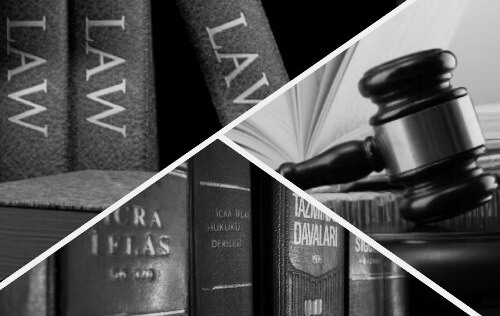LawEuro website was created in order to help in the search for legal information, as well as in solving various problems arising in the practice of lawyers.
 The site contains laws, judicial practice (court decisions in criminal and civil cases), information of educational, scientific and cognitive nature, which is located in thematic sections. Also on the site you can find solutions to complex issues.
The site contains laws, judicial practice (court decisions in criminal and civil cases), information of educational, scientific and cognitive nature, which is located in thematic sections. Also on the site you can find solutions to complex issues.
On the site you can find articles containing the practical experience of lawyers, events in the field of legislative activity, science, which are an integral part of the learning process. The problems that law enforcement bodies and citizens face when applying certain laws, and ways to solve them are considered. We hope that our LawEuro website will help you in solving issues of interest.
We cover all key Employment Appeal Tribunal, High Court, Court of Appeal, Supreme Court decisions, as well as key European cases, in a single source. The site is updated almost every day.
Succinct summaries of each case and full search functions make the site an unrivalled research tool for all employment lawyers, HR professionals, trade union reps and anyone else involved in employment litigation.
CASE OF VASSALLO v. HUNGARY – 32662/20. Due to the lack of such precautions, a period of three years and nine months in a matter as sensitive as the international return and parental custody rights of young children was not in compliance with the positive obligation to act expeditiously. The Court does not observe any circumstances capable of exempting the domestic courts from such obligations.
CASE OF ROMANIUK v. POLAND. The issue in the case is whether the criminal proceedings against the applicant had been fair considering that he was not given an opportunity to examine or to have examined his co-defendant whose evidence was decisive for his conviction.
CASE OF LA SPADA v. ITALY – 2731/14. The case concerns the deprivation of the applicant’s land through the application by the domestic courts of the constructive-expropriation rule (accessione invertita or occupazione acquisitiva), as well as the non-enforcement of the domestic courts’ decisions rendered in this respect.
CASE OF PLECHLO v. SLOVAKIA – 18593/19. The case concerns the tapping and recording of telephone conversations to which the applicant was randomly a party, in the context of a criminal investigation which did not directly concern him, the storage and use of the material obtained, and the alleged lack of legal protection in that respect.
CASE OF ZAGORSKA v. BULGARIA – 53285/15. The case concerns the confiscation of the applicant’s assets as proceeds of crime. The case is of the type examined in Todorov and Others v. Bulgaria (nos. 50705/11 and 6 others, 13 July 2021), and concerns the forfeiture of assets of the applicant as proceeds of crime.
CASE OF VASSALLO AND VINCENTI v. MALTA – 38111/21. The application concerns an imposed lease under Act XXIII of 1979 amending Chapter 158 of the Laws of Malta affecting the applicants’ property at Flat 19 Vincenti Buildings, Straight Street, Valletta, as of 1991.
Site categories:
![]() England and Wales Court of Appeal (Civil Division) Decisions
England and Wales Court of Appeal (Civil Division) Decisions
![]() European Court of Human Rights
European Court of Human Rights
![]() Official Journal of the European Union
Official Journal of the European Union

Law is a system of rules created and enforced through social or governmental institutions to regulate behavior, with its precise definition a matter of longstanding debate. It has been variously described as a science and the art of justice. State-enforced laws can be made by a group legislature or by a single legislator, resulting in statutes; by the executive through decrees and regulations; or established by judges through precedent, usually in common law jurisdictions. Private individuals may create legally binding contracts, including arbitration agreements that adopt alternative ways of resolving disputes to standard court litigation. The creation of laws themselves may be influenced by a constitution, written or tacit, and the rights encoded therein. The law shapes politics, economics, history and society in various ways and serves as a mediator of relations between people.
Legal systems vary between countries, with their differences analysed in comparative law. In civil law jurisdictions, a legislature or other central body codifies and consolidates the law. In common law systems, judges make binding case law through precedent, although on occasion this may be overturned by a higher court or the legislature. Historically, religious law influenced secular matters, and is still used in some religious communities. Sharia law based on Islamic principles is used as the primary legal system in several countries, including Iran and Saudi Arabia.
Law’s scope can be divided into two domains. Public law concerns government and society, including constitutional law, administrative law, and criminal law. Private law deals with legal disputes between individuals and/or organisations in areas such as contracts, property, torts/delicts and commercial law. This distinction is stronger in civil law countries, particularly those with a separate system of administrative courts; by contrast, the public-private law divide is less pronounced in common law jurisdictions.
Law provides a source of scholarly inquiry into legal history, philosophy, economic analysis and sociology. Law also raises important and complex issues concerning equality, fairness, and justice.